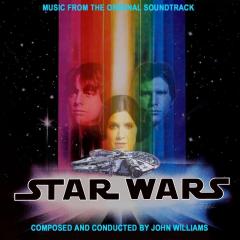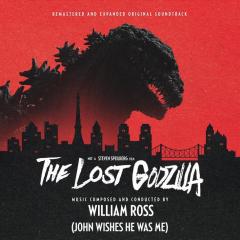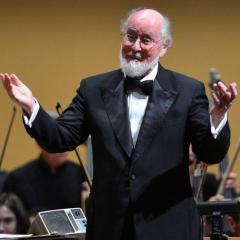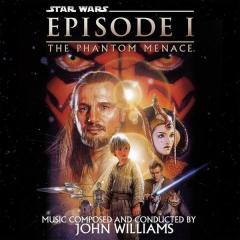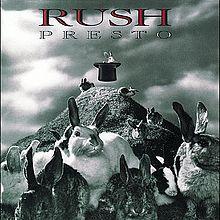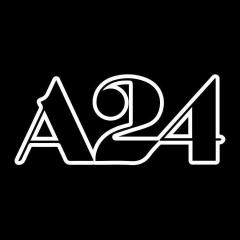-
Posts
13,003 -
Joined
-
Last visited
-
Days Won
9
Reputation Activity
-
 Romão got a reaction from Bilbo in The Official "Album Presentation vs Complete & Chronological Presentation" Thread Round 2
Romão got a reaction from Bilbo in The Official "Album Presentation vs Complete & Chronological Presentation" Thread Round 2
That's not so much the issue, it's more like you refuse to try anything on a pizza that has the same color or shape of a sardine, regardless of the flavor
I apologize for that, I should not have made any personal judgments.
The thing that gets me, though, it's your almost absolute dismissal of expanded editions on principle, disregarding a whole plethora of nuance. You are potentially depriving yourself of musical enjoyment and discovery.
Mind you, I agree with you that often shorter albums do serve some scores better. That some composers know, better than most, how to properly assemble an album to showcase his musical intentions. That there's an unhealthy obsession with unearthing and having available everything single second of music recorded for a given score. We are in absolute agreement there. However, there are frequent nuanced situations:
- The OST album and the expansion offer totally different, but valid, listening experiences, without one replacing the other. Example: E.T., Jaws
- The OST album was severely lacking in the way it presented the score (due to various factors, like short length, odd sequencing, lacking in sound quality, over-reliance on the inclusion of pop songs for commercial purposes, etc.), and only through the expanded edition did the score really come to fruition. Examples: The Shadow, A.I.
- The OST already presented a good distillation of the score and great listening experience, but the expanded edition made the whole architecture of the score come to life, to the point tracks already included on the OST are given a new whole dimension due to the context that surrounds them. Examples: Dracula, The Lost World.
- The OST was a great album, but the score is simply too sprawling and plentiful in riches to the be contained to a single cd. Examples: The Empire Strikes Back, The Phantom Menace, Hook.
- The OST was a perfect summation of the score and the extra music on the expanded edition, while interesting on its own, did not improve the listening experience. Examples: Ran, Batman, Jurassic Park.
- The OST was a great album, but the choice of tracks included was influenced by other factors besides purely musical flow, so a better album assembly might have been possible had all the elements been available for inclusion. Examples: Sphere.
- The OST was a great album assembly and the expanded score actually made the score seem worse. Examples: Masada, The Black Cauldron, The Fury.
- The OST was a good presentation of the score and listening experience, but the expanded edition, while not being a perfect listening experience on its own, presents enough valid extra material for one's own improved playlist. Examples: Bram Stoker's Dracula, The Thin Red Line.
- The expanded edition presents alternates that are great to listen on their own, even when completely removed from an album program. Examples: The Matrix Reloaded, Blade Runner.
This is just meant to illustrate the plethora of nuances that might exist when discussing the merits and shortcomings of expanded editions. There can be no general stance or answer that applies to all situations.
-
 Romão got a reaction from Holko in The Official "Album Presentation vs Complete & Chronological Presentation" Thread Round 2
Romão got a reaction from Holko in The Official "Album Presentation vs Complete & Chronological Presentation" Thread Round 2
That's not so much the issue, it's more like you refuse to try anything on a pizza that has the same color or shape of a sardine, regardless of the flavor
I apologize for that, I should not have made any personal judgments.
The thing that gets me, though, it's your almost absolute dismissal of expanded editions on principle, disregarding a whole plethora of nuance. You are potentially depriving yourself of musical enjoyment and discovery.
Mind you, I agree with you that often shorter albums do serve some scores better. That some composers know, better than most, how to properly assemble an album to showcase his musical intentions. That there's an unhealthy obsession with unearthing and having available everything single second of music recorded for a given score. We are in absolute agreement there. However, there are frequent nuanced situations:
- The OST album and the expansion offer totally different, but valid, listening experiences, without one replacing the other. Example: E.T., Jaws
- The OST album was severely lacking in the way it presented the score (due to various factors, like short length, odd sequencing, lacking in sound quality, over-reliance on the inclusion of pop songs for commercial purposes, etc.), and only through the expanded edition did the score really come to fruition. Examples: The Shadow, A.I.
- The OST already presented a good distillation of the score and great listening experience, but the expanded edition made the whole architecture of the score come to life, to the point tracks already included on the OST are given a new whole dimension due to the context that surrounds them. Examples: Dracula, The Lost World.
- The OST was a great album, but the score is simply too sprawling and plentiful in riches to the be contained to a single cd. Examples: The Empire Strikes Back, The Phantom Menace, Hook.
- The OST was a perfect summation of the score and the extra music on the expanded edition, while interesting on its own, did not improve the listening experience. Examples: Ran, Batman, Jurassic Park.
- The OST was a great album, but the choice of tracks included was influenced by other factors besides purely musical flow, so a better album assembly might have been possible had all the elements been available for inclusion. Examples: Sphere.
- The OST was a great album assembly and the expanded score actually made the score seem worse. Examples: Masada, The Black Cauldron, The Fury.
- The OST was a good presentation of the score and listening experience, but the expanded edition, while not being a perfect listening experience on its own, presents enough valid extra material for one's own improved playlist. Examples: Bram Stoker's Dracula, The Thin Red Line.
- The expanded edition presents alternates that are great to listen on their own, even when completely removed from an album program. Examples: The Matrix Reloaded, Blade Runner.
This is just meant to illustrate the plethora of nuances that might exist when discussing the merits and shortcomings of expanded editions. There can be no general stance or answer that applies to all situations.
-
 Romão got a reaction from Miguel Andrade in The Official "Album Presentation vs Complete & Chronological Presentation" Thread Round 2
Romão got a reaction from Miguel Andrade in The Official "Album Presentation vs Complete & Chronological Presentation" Thread Round 2
That's not so much the issue, it's more like you refuse to try anything on a pizza that has the same color or shape of a sardine, regardless of the flavor
I apologize for that, I should not have made any personal judgments.
The thing that gets me, though, it's your almost absolute dismissal of expanded editions on principle, disregarding a whole plethora of nuance. You are potentially depriving yourself of musical enjoyment and discovery.
Mind you, I agree with you that often shorter albums do serve some scores better. That some composers know, better than most, how to properly assemble an album to showcase his musical intentions. That there's an unhealthy obsession with unearthing and having available everything single second of music recorded for a given score. We are in absolute agreement there. However, there are frequent nuanced situations:
- The OST album and the expansion offer totally different, but valid, listening experiences, without one replacing the other. Example: E.T., Jaws
- The OST album was severely lacking in the way it presented the score (due to various factors, like short length, odd sequencing, lacking in sound quality, over-reliance on the inclusion of pop songs for commercial purposes, etc.), and only through the expanded edition did the score really come to fruition. Examples: The Shadow, A.I.
- The OST already presented a good distillation of the score and great listening experience, but the expanded edition made the whole architecture of the score come to life, to the point tracks already included on the OST are given a new whole dimension due to the context that surrounds them. Examples: Dracula, The Lost World.
- The OST was a great album, but the score is simply too sprawling and plentiful in riches to the be contained to a single cd. Examples: The Empire Strikes Back, The Phantom Menace, Hook.
- The OST was a perfect summation of the score and the extra music on the expanded edition, while interesting on its own, did not improve the listening experience. Examples: Ran, Batman, Jurassic Park.
- The OST was a great album, but the choice of tracks included was influenced by other factors besides purely musical flow, so a better album assembly might have been possible had all the elements been available for inclusion. Examples: Sphere.
- The OST was a great album assembly and the expanded score actually made the score seem worse. Examples: Masada, The Black Cauldron, The Fury.
- The OST was a good presentation of the score and listening experience, but the expanded edition, while not being a perfect listening experience on its own, presents enough valid extra material for one's own improved playlist. Examples: Bram Stoker's Dracula, The Thin Red Line.
- The expanded edition presents alternates that are great to listen on their own, even when completely removed from an album program. Examples: The Matrix Reloaded, Blade Runner.
This is just meant to illustrate the plethora of nuances that might exist when discussing the merits and shortcomings of expanded editions. There can be no general stance or answer that applies to all situations.
-
 Romão got a reaction from Andy in The Official "Album Presentation vs Complete & Chronological Presentation" Thread Round 2
Romão got a reaction from Andy in The Official "Album Presentation vs Complete & Chronological Presentation" Thread Round 2
That's not so much the issue, it's more like you refuse to try anything on a pizza that has the same color or shape of a sardine, regardless of the flavor
I apologize for that, I should not have made any personal judgments.
The thing that gets me, though, it's your almost absolute dismissal of expanded editions on principle, disregarding a whole plethora of nuance. You are potentially depriving yourself of musical enjoyment and discovery.
Mind you, I agree with you that often shorter albums do serve some scores better. That some composers know, better than most, how to properly assemble an album to showcase his musical intentions. That there's an unhealthy obsession with unearthing and having available everything single second of music recorded for a given score. We are in absolute agreement there. However, there are frequent nuanced situations:
- The OST album and the expansion offer totally different, but valid, listening experiences, without one replacing the other. Example: E.T., Jaws
- The OST album was severely lacking in the way it presented the score (due to various factors, like short length, odd sequencing, lacking in sound quality, over-reliance on the inclusion of pop songs for commercial purposes, etc.), and only through the expanded edition did the score really come to fruition. Examples: The Shadow, A.I.
- The OST already presented a good distillation of the score and great listening experience, but the expanded edition made the whole architecture of the score come to life, to the point tracks already included on the OST are given a new whole dimension due to the context that surrounds them. Examples: Dracula, The Lost World.
- The OST was a great album, but the score is simply too sprawling and plentiful in riches to the be contained to a single cd. Examples: The Empire Strikes Back, The Phantom Menace, Hook.
- The OST was a perfect summation of the score and the extra music on the expanded edition, while interesting on its own, did not improve the listening experience. Examples: Ran, Batman, Jurassic Park.
- The OST was a great album, but the choice of tracks included was influenced by other factors besides purely musical flow, so a better album assembly might have been possible had all the elements been available for inclusion. Examples: Sphere.
- The OST was a great album assembly and the expanded score actually made the score seem worse. Examples: Masada, The Black Cauldron, The Fury.
- The OST was a good presentation of the score and listening experience, but the expanded edition, while not being a perfect listening experience on its own, presents enough valid extra material for one's own improved playlist. Examples: Bram Stoker's Dracula, The Thin Red Line.
- The expanded edition presents alternates that are great to listen on their own, even when completely removed from an album program. Examples: The Matrix Reloaded, Blade Runner.
This is just meant to illustrate the plethora of nuances that might exist when discussing the merits and shortcomings of expanded editions. There can be no general stance or answer that applies to all situations.
-
 Romão got a reaction from TSMefford in The Official "Album Presentation vs Complete & Chronological Presentation" Thread Round 2
Romão got a reaction from TSMefford in The Official "Album Presentation vs Complete & Chronological Presentation" Thread Round 2
That's not so much the issue, it's more like you refuse to try anything on a pizza that has the same color or shape of a sardine, regardless of the flavor
I apologize for that, I should not have made any personal judgments.
The thing that gets me, though, it's your almost absolute dismissal of expanded editions on principle, disregarding a whole plethora of nuance. You are potentially depriving yourself of musical enjoyment and discovery.
Mind you, I agree with you that often shorter albums do serve some scores better. That some composers know, better than most, how to properly assemble an album to showcase his musical intentions. That there's an unhealthy obsession with unearthing and having available everything single second of music recorded for a given score. We are in absolute agreement there. However, there are frequent nuanced situations:
- The OST album and the expansion offer totally different, but valid, listening experiences, without one replacing the other. Example: E.T., Jaws
- The OST album was severely lacking in the way it presented the score (due to various factors, like short length, odd sequencing, lacking in sound quality, over-reliance on the inclusion of pop songs for commercial purposes, etc.), and only through the expanded edition did the score really come to fruition. Examples: The Shadow, A.I.
- The OST already presented a good distillation of the score and great listening experience, but the expanded edition made the whole architecture of the score come to life, to the point tracks already included on the OST are given a new whole dimension due to the context that surrounds them. Examples: Dracula, The Lost World.
- The OST was a great album, but the score is simply too sprawling and plentiful in riches to the be contained to a single cd. Examples: The Empire Strikes Back, The Phantom Menace, Hook.
- The OST was a perfect summation of the score and the extra music on the expanded edition, while interesting on its own, did not improve the listening experience. Examples: Ran, Batman, Jurassic Park.
- The OST was a great album, but the choice of tracks included was influenced by other factors besides purely musical flow, so a better album assembly might have been possible had all the elements been available for inclusion. Examples: Sphere.
- The OST was a great album assembly and the expanded score actually made the score seem worse. Examples: Masada, The Black Cauldron, The Fury.
- The OST was a good presentation of the score and listening experience, but the expanded edition, while not being a perfect listening experience on its own, presents enough valid extra material for one's own improved playlist. Examples: Bram Stoker's Dracula, The Thin Red Line.
- The expanded edition presents alternates that are great to listen on their own, even when completely removed from an album program. Examples: The Matrix Reloaded, Blade Runner.
This is just meant to illustrate the plethora of nuances that might exist when discussing the merits and shortcomings of expanded editions. There can be no general stance or answer that applies to all situations.
-
 Romão got a reaction from Falstaft in Quess the temp-track from whole JW's career
Romão got a reaction from Falstaft in Quess the temp-track from whole JW's career
And the Calm Sea theme in Jaws also greatly reminds of the very first minutes of the same symphony
-
 Romão reacted to Falstaft in Quess the temp-track from whole JW's career
Romão reacted to Falstaft in Quess the temp-track from whole JW's career
Yeah, this is indisputable. And well-justified too, given the strong linkage of the Barber adagio with Kennedy -- both as a piece he personally admired and one that was indelibly linked with his memorialization following his death. It's also a piece Stone had already mined in Platoon, directly as well as the the original Delerue score that at times is undisguised Barber pastiche. And of course Williams had already channeled another Barber work, the Violin Concerto, if anything more pervasively in Born on the Fourth of July.
Sources: Larson, The Saddest Music Ever Written; Howard, "The Popular Reception of Samuel Barber's 'Adagio for Strings'", Audissino, John Williams's Film Music, this earlier thread:
I've also always been struck by the affinity between this cue from Jaws and the mysterious coda at the end of Vaughan Williams's Second Symphony. It's not the only place in the Jaws score that seems to draw from that coda (the end of "Preparing the Cage" too). And Goldsmith also drew a lot from this piece, and RVW more generally, esp. in Alien.
-
 Romão reacted to crumbs in Amistad - Chance of remastered, expanded and definitive release?
Romão reacted to crumbs in Amistad - Chance of remastered, expanded and definitive release?
Stumbled upon another incredible unreleased cue tonight.
I can't believe how much gold is unreleased from this score! An expanded release will be absolutely revelatory once Mike gets around to it. In fact, I'd be thrilled if this was LLL's only remaining JW release in 2020.
Just wait for the goosebumps in the last minute of the cue.
-
 Romão got a reaction from A. A. Ron in The Official "Album Presentation vs Complete & Chronological Presentation" Thread Round 2
Romão got a reaction from A. A. Ron in The Official "Album Presentation vs Complete & Chronological Presentation" Thread Round 2
I didn't really want to chime in, but this is debate has been going on long enough.
You know, Thor, I would take your stance much more seriously if you, albeit having a general preference for shorter, album oriented and composer supervised soundtrack presentations, would every now and then concede that some scores do indeed work much better and their musical architecture and thought becomes much more apparent in their complete form.
By copy pasting the same post for the last 10 years or so (probably even more) on every thread for a new JW expanded edition, you come across as someone who found a identitary niche, a personality gimmick, to which you cling to no matter what, as it were a crucial and irreplaceable element of your self image.
I mean no disrespect, as I generally enjoying reading your opinions on soundtracks and movies, and your less orthodox opinions are often refreshing. But your stance on expanded editions is starting to veer dangerously close to blind fundamentalism, just for the sake of it.
-

-
 Romão got a reaction from tmarps in John Williams in LEGO
Romão got a reaction from tmarps in John Williams in LEGO
This is my own JW LEGO minifig, photographed by Peio at the Musikverein Concert in January:
And next to Brahms:
-
 Romão got a reaction from Ricard in What Is The Last Film You Watched? (Older Films)
Romão got a reaction from Ricard in What Is The Last Film You Watched? (Older Films)
First time watching this. And having a passing knowledge of the formula, tone and structure of its numerous sequels, I must say I was surprised how good this actually was. Wonderfully character driven, naturalistic performances, great sense of place and period, much grimier than I expected. This was considered schmaltzy in 1976 (and it is). But this is far richer and tasteful schmaltz than what we got in the subsequent decades. And Stallone's integrity and respect for the audience (that always comes through even in his most dismal roles and performances) is given the perfect vehicle for expression. Spot on, tone perfect performance.
This movie won the Best Picture Oscar in one of the best pic nominees line ups I can remember:
Rocky
All the President's Men
Network
Bound for Glory
Taxi Driver
so that might have helped to drag its reputation down, as the movie that prevented superior works from being fully acknowledged, but this truly is a 70's version of a feel good movie. It's a movie I had always thought I had seen without actually seeing it. Than I knew already all the plot beats. But story remains much more important than plot.
Much, much better than I was expecting.
-
 Romão got a reaction from Holko in Restored Isolated Score/Thematic Breakdown: JAWS
Romão got a reaction from Holko in Restored Isolated Score/Thematic Breakdown: JAWS
Fantastic job, really brings home how accomplished this score is.
Am I the only one that is constantly reminded of the opening of Vaughan Williams' Symphony 2: A London Symphony, when listening to the Calm Sea theme?
-
 Romão reacted to Holko in Restored Isolated Score/Thematic Breakdown: JAWS
Romão reacted to Holko in Restored Isolated Score/Thematic Breakdown: JAWS
Part 2
8m2 Out to Sea fits nicely. So far, even if memorable, the score was very single-minded, if not exactly monothematic - but now it opens right up, here premiering an unsure half-Orca and the Jolly Hornpipe.
8m3/9m0 Tug on the Line - Shark A is back in a very subdued form, but we're also introduced to light forms of Determined Crew and Heroic Hornpipe, then we finish with Calm Sea again. Middle part unused, had to add more silences to the end.
9m1/10m0 Man Against Beast is the showstopper centerpiece and is appropriately thematically rich. Shark A and B pop up often or provide the spine of the whole thing, but the latter also appears in a unique evolved form at when the shark is properly revealed as it swims by. Early on we get a deflated Jolly Hornpipe, then a Determined Crew after the initial shock leaves, with Jolly Hornpipe laid over its first reprise, brass and woodwinds taking DC over from the strings later. A quick dialogue between Jolly Hornpipe, Orca and Heroic Hornpipe follows soon, until Quint gives the cue a big jolt of determined drive with Heroic Hornpipe and Orca, soon transforming into a Shark A-like part that gives way to Determined Crew and ultimately Shark A and B. The next thematic moment comes as the tied barrel successfully floats off, with Heroic Hornpipe transforming into the unique Korngoldian Fanfare, then leading it down into an intentionally unsatisfactory ending and echoing some more times when the shark submerges. The film ran faster than the Intrada, had to slow it down a tad to bring it back up to sync.
11m1 Quint's Tale fits nicely, only the occasional Shark B being thematic here.
11m3 Brody Panics showcases some more action Shark A/B.
11m4 Barrel Off Starboard again has more Shark A, a Calm Sea interlude and more Shark A with a single Shark B. The ending is looped in the movie and extended by Wild Shark Theme.
11m5/12m0 Great Chase starts with an introduction of Shark A+Determined Crew and an uncharacteristic Shark B variant, but quickly moves away into unique material that dominates it all the way through, with interjections from Heroic Hornpipe with the Triumph Extension and a violent Shark A/B pair.
12mX Shark Tows Orca uses a slow inverted Shark A. Unused, fits I assume.
12m1 Three Barrels Under features a not so jolly Jolly Hornpipe aside from Shark A and B. It's partly unused but almost fits, had to stretch it a bit.
14m4Rev Quint Thinks It Over starts with Determined Crew and transitions to Spanish Ladies. Shortened in the film but fits.
13m1 Work Montage is an extended showcase of Determined Crew, with Heroic Hornpipe opening it and coming in to support a couple times, Orca helping transition it to the less active second half.
13m2 The Shark Approaches is a pure Shark A.
13m3 Shark Hits the Cage features nothing thematic aside from a Shark A. This is another cue where the film was running faster just enough to noticeably go out of sync so I had to slow it back down.
14m1 Quint Meets His End features unique material over Shark A. It's unused, had to stretch the middle twice.
14m2 Blown to Bits leads to quiet Orca statements after a unique start and Shark A, then A comes back and Determined Crew takes over for Brody's shooting attempts. Opening unused. Had to remove the shots of Brody hitting the shark with the tank before throwing it in its mouth and trim one of him aiming.
14m3 End Titles stats with the Triumph Extension, then an Orca with the TE, finishes with a satisfying Calm Sea. It fits, though looped in the film.
-
 Romão reacted to Holko in Restored Isolated Score/Thematic Breakdown: JAWS
Romão reacted to Holko in Restored Isolated Score/Thematic Breakdown: JAWS
The game is up!
Yes, it is. I just thought of this silly idea of doing a teaser using none of the recogniseable musical material but instead the poor constant butt of jokes - and it was fun to do!
Alright then.
Next one!
Here October turned back into summery weather after the end of September trailed off, so my "Jaws would be great to do in summer" comment holds up . Score first, edit movie to it. Here not only were there microedits and unused cues, but due to the age and analogue nature of the material I even had to take different running speeds into consideration for a few tracks.
While writing the commentary it came to mind that Jaws does not have an official or community thematic catalogue as such, that's not necessarily an oft discussed nature of the score - partially because many of them that come up in the second half only have very loose associations. I did not even try to force them to, I gave them plotwise generic but descriptive names (i.e. not plot or character-relevant ones like Brody's theme or Quint's theme) and observe when they show up.
They are:
- Shark A: the famous low two-note ostinato.
- Shark B: often just 3 rising notes to accompany A, but has a fuller form too.
- Calm Sea: perhaps more of a setting for strings, a recurring one nevertheless.
- Determined Crew: Like the name suggests, determined strings for the crew's various efforts to succeed in their mission. At first I named it Determined Quint but it grows to cast its net wider.
- Orca: A sea shanty-like melody appearing in various guises from anticipatory to deflated to optimistic. The one motif beside the Sharks that could be given a clearer association, partly because Mike mentions an Orca theme in the booklet, partly because it's reused in Jaws II in "Finding the Orca".
- Jolly Hornpipe: An optimistic rising melody.
- Heroic Hornpipe: Close enough to the Jolly Hornpipe that you can confuse the two but definitely different enough with descending parts and a less elaborate ending that you can tell them apart once you catch on.
- What makes matters more confusing is that the last 3 are all just the A melody - they all share a Triumph Extension B part between them, any of them can be continued with it. What's even more confusing is in the movie only Orca and HH get it, JH only gets it in the OST version of Out to Sea and the later concert piece "Out to Sea/Shark Cage Fugue", getting further development in both. It's a further thing to unify the crew and tie the thematic catalogue together, but it can also make it harder to tell them apart.
Part 1
1m1 Jaws Main Titles introduces Shark A and Shark B. It fits, of course.
1m3 The First Victim elaborates more on Shark A. One of the shots of Chrissie hanging onto the buoy was shortened, the quiet ending is unused. Interesting choice on scoring the bell!
1m5 Remains on the Beach fits nicely. Note how the music seems to be sighing with Brody.
1m6s The Typewriter - best cue of the score.
2m2 The Empty Raft has a bit more Shark A and Shark B. Its end is unused and was shortened by quite a bit. Again a lot of interesting choices - the pull-zoom shot, or scoring the panic, but not when the screams would drown it out anyway.
3m1 The Pier Incident starts with Shark B as Brody looks at the images, then changes to Shark A for the action.
4m1r Father and Son fits.
5m1 The Alimentary Canal is unused but fits. When Hooper shows Brody his estimate for the jaw size based on the bites on the body, Shark B plays.
5m2/6m0 Ben Gardner's Boat fits in my opinion, even though it seems it's just barely microedited in the film somewhere. When Hooper finds the tooth, Shark B plays. A pattern seems to be emerging, B for the more indirect looming threat and references, A for the direct presence and threat, fin coming towards you and all that jazz.
6m1 The Montage fits.
7m1 Into the Estuary gives us more variations on Shark A and B, but also introduces Calm Sea at the end when Brody looks out on it. Had to be split in one place, and it was obvious where: Spielberg said in the docu the one shot the censors told him to shorten was the leg falling down, bouncing, then settling. Note how JW scores Brody's rising tension, the blood bubbling up, and the "flyby" shot.
-
 Romão got a reaction from SteveMc in What Is The Last Film You Watched? (Older Films)
Romão got a reaction from SteveMc in What Is The Last Film You Watched? (Older Films)
First time watching this. And having a passing knowledge of the formula, tone and structure of its numerous sequels, I must say I was surprised how good this actually was. Wonderfully character driven, naturalistic performances, great sense of place and period, much grimier than I expected. This was considered schmaltzy in 1976 (and it is). But this is far richer and tasteful schmaltz than what we got in the subsequent decades. And Stallone's integrity and respect for the audience (that always comes through even in his most dismal roles and performances) is given the perfect vehicle for expression. Spot on, tone perfect performance.
This movie won the Best Picture Oscar in one of the best pic nominees line ups I can remember:
Rocky
All the President's Men
Network
Bound for Glory
Taxi Driver
so that might have helped to drag its reputation down, as the movie that prevented superior works from being fully acknowledged, but this truly is a 70's version of a feel good movie. It's a movie I had always thought I had seen without actually seeing it. Than I knew already all the plot beats. But story remains much more important than plot.
Much, much better than I was expecting.
-
 Romão got a reaction from crocodile in What Is The Last Film You Watched? (Older Films)
Romão got a reaction from crocodile in What Is The Last Film You Watched? (Older Films)
First time watching this. And having a passing knowledge of the formula, tone and structure of its numerous sequels, I must say I was surprised how good this actually was. Wonderfully character driven, naturalistic performances, great sense of place and period, much grimier than I expected. This was considered schmaltzy in 1976 (and it is). But this is far richer and tasteful schmaltz than what we got in the subsequent decades. And Stallone's integrity and respect for the audience (that always comes through even in his most dismal roles and performances) is given the perfect vehicle for expression. Spot on, tone perfect performance.
This movie won the Best Picture Oscar in one of the best pic nominees line ups I can remember:
Rocky
All the President's Men
Network
Bound for Glory
Taxi Driver
so that might have helped to drag its reputation down, as the movie that prevented superior works from being fully acknowledged, but this truly is a 70's version of a feel good movie. It's a movie I had always thought I had seen without actually seeing it. Than I knew already all the plot beats. But story remains much more important than plot.
Much, much better than I was expecting.
-
 Romão got a reaction from Naïve Old Fart in What Is The Last Film You Watched? (Older Films)
Romão got a reaction from Naïve Old Fart in What Is The Last Film You Watched? (Older Films)
First time watching this. And having a passing knowledge of the formula, tone and structure of its numerous sequels, I must say I was surprised how good this actually was. Wonderfully character driven, naturalistic performances, great sense of place and period, much grimier than I expected. This was considered schmaltzy in 1976 (and it is). But this is far richer and tasteful schmaltz than what we got in the subsequent decades. And Stallone's integrity and respect for the audience (that always comes through even in his most dismal roles and performances) is given the perfect vehicle for expression. Spot on, tone perfect performance.
This movie won the Best Picture Oscar in one of the best pic nominees line ups I can remember:
Rocky
All the President's Men
Network
Bound for Glory
Taxi Driver
so that might have helped to drag its reputation down, as the movie that prevented superior works from being fully acknowledged, but this truly is a 70's version of a feel good movie. It's a movie I had always thought I had seen without actually seeing it. Than I knew already all the plot beats. But story remains much more important than plot.
Much, much better than I was expecting.
-
 Romão got a reaction from A24 in What Is The Last Film You Watched? (Older Films)
Romão got a reaction from A24 in What Is The Last Film You Watched? (Older Films)
First time watching this. And having a passing knowledge of the formula, tone and structure of its numerous sequels, I must say I was surprised how good this actually was. Wonderfully character driven, naturalistic performances, great sense of place and period, much grimier than I expected. This was considered schmaltzy in 1976 (and it is). But this is far richer and tasteful schmaltz than what we got in the subsequent decades. And Stallone's integrity and respect for the audience (that always comes through even in his most dismal roles and performances) is given the perfect vehicle for expression. Spot on, tone perfect performance.
This movie won the Best Picture Oscar in one of the best pic nominees line ups I can remember:
Rocky
All the President's Men
Network
Bound for Glory
Taxi Driver
so that might have helped to drag its reputation down, as the movie that prevented superior works from being fully acknowledged, but this truly is a 70's version of a feel good movie. It's a movie I had always thought I had seen without actually seeing it. Than I knew already all the plot beats. But story remains much more important than plot.
Much, much better than I was expecting.
-
 Romão reacted to King Mark in Is John Williams' Amistad generally underrated?
Romão reacted to King Mark in Is John Williams' Amistad generally underrated?
1994-1999 is the only period I almost lost faith in Williams
-
 Romão got a reaction from Marian Schedenig in John Williams in LEGO
Romão got a reaction from Marian Schedenig in John Williams in LEGO
This is my own JW LEGO minifig, photographed by Peio at the Musikverein Concert in January:
And next to Brahms:
-

-

-
 Romão got a reaction from Marc in John Williams in LEGO
Romão got a reaction from Marc in John Williams in LEGO
Sorry, I just couln't resist.
John Williams sighted in Melee Island!!
John Williams with a few members of the starwars saga
The John Williams legacy
John Williams on the steps of the Melee Cathedral
If your interested, you can see more photos of the cathedral or of my other projects (just click "up") in
http://www.brickshelf.com/cgi-bin/gallery.cgi?f=115754
-
 Romão got a reaction from Marian Schedenig in John Williams in LEGO
Romão got a reaction from Marian Schedenig in John Williams in LEGO
I'm working on a model of the Washington National Cathedral right now, but hopefully once that is done, I can focus on a large scale Monkey Island themed display I've been planning. Really great job on those minifigs
I do like the one on the far left, it reminds of the flowing beard in Secret of Monkey Island, although I do get you're going more for Lechuck's look in MI2. I still have hope something Monkey Island related gets approved on LEGO Ideas, so we can finally get some official Monkey Island figures, but in the meantime, I think I will steal the design of your MI2 Guybrush, looks great






